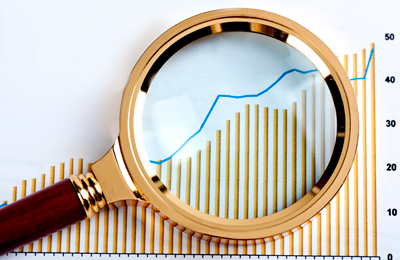
GCC economic diversification to drive growth
MANAMA, April 30, 2015
Economic diversification is a crucial growth driver for the GCC countries.
The GCC could see additional gains of up to $17.7 billion if the region were to catch up to the average OECD level of diversification, said a report in the Gulf Daily News (GDN), our sister publication.
This is according to EY's 'Growth Drivers 2 report: Digging beneath the surface - Is it time to rethink diversification in the GCC?'
The report, which uses a tracker to look at the levels of diversification across the GCC and how to speed up progress, was launched at the Economist event, 'Future of Work: Middle East'.
EY Mena advisory leader Gerard Gallagher said dependence on oil and issues around youth employment are the GCC's biggest economic challenges.
"With recent oil price volatility, diversification has returned to the top of the GCC agenda; it's an opportunity worth $17.7 billion.
"To put that into context, it is more than three-quarters of the entire flow of foreign direct investment to the GCC region for 2013." --
The EY Diversification Tracker, which benchmarks the GCC countries both globally and against each other, provides a standardised basis for assessing the degree to which economies have moved away from dependence on oil.
It focuses on three aspects export complexity, the share of the non-oil sector and private versus public sector spending, which have been combined to give a percentage of diversification relative to the highest global performer.
The report also identifies a 'sweet spot' where regional strengths, economic impact and nationals' employment preferences meet, allowing all three factors to be achieved.
"The best drivers of diversification are those that have the strongest linkages with the rest of the economy," said Mr Gallagher.
"These sectors are said to have a high economic multiplier: in other words, a dollar of investment translates into far more than a dollar of GDP due to the stimulation of other sectors.
"Sectors that fall in the sweet spot include transport, financial services, retail and tourism, telecom and research and development," said Gerard.
The analysis of multiplier sectors in hydrocarbon economies shows that additional investment in oil and gas brings the least additional return to GDP at $1.30 and affects just seven other sectors.
Construction is at the opposite extreme. It has the highest economic multiplier, averaging an impact of $1.80 in GDP for every dollar invested in construction activity. This trickle down feeds into almost every other sector.
EY Mena advisory services new markets leader Michael Hasbani said the key is not for governments to pump more public money into these sectors.
"The public sector needs to shift from being the main investor to being the enabler and driver of business, resetting the incentives, removing regulatory obstacles, encouraging collaboration and providing world-class infrastructure and services.
"The goal for diversification is not what is achievable in each individual country, it is how Gulf companies and governments can find innovative, proactive and profitable solutions to challenges such as resource scarcity, demographics and digitalisation, that are having a profound impact on how business is done and on where jobs are created."
Creating jobs will be a critical outcome. However, diversification does not automatically create jobs that are viable substitutes for public sector employment.
Creating private sector jobs will not ensure employment for young nationals unless they are taught technical skills and professional attitudes that would both motivate and enable them to take up the increasingly demanding jobs that the knowledge economy brings. To tackle this issue, many of the Gulf countries have been working to improve their education systems and have developed innovation ecosystems, encouraging technical research and entrepreneurship.
"Diversification will struggle if the GCC region only looks inwards. Governments and companies in the region should shape global trends to its advantage," Hasbani said.
"The sectors that are preserved without transformation will no longer be relevant to the rest of the world, let alone competitive.
"The window of opportunity to break the reliance on oil and gas is now, but it will require new and innovative approaches to make it happen. It is time to truly capitalise the collective strength of the GCC, integrating our economies and harmonising regulations to encourage long-term, sustainable prosperity and fulfil our global ambitions," he said. - TradeArabia News Service







